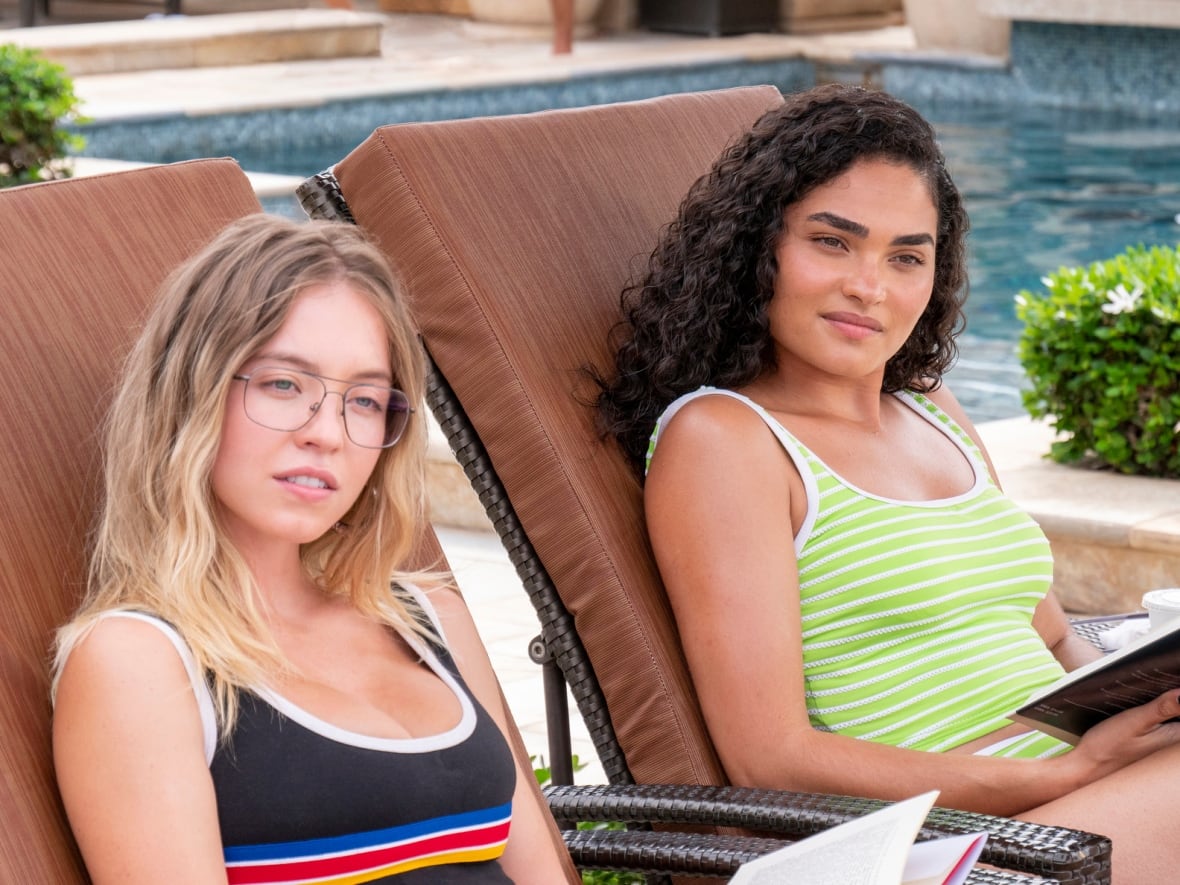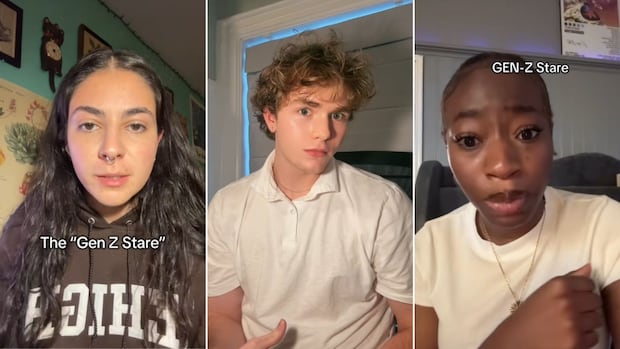First they came for our elders, mocking their supposedly outdated opinions with a single, repeated refrain: “OK, boomer.”
Then, they came for millennials, like, rather aggressively, making fun of their ankle socks, coffee dependence, for pausing before speaking in videos and for knowing which Hogwarts house they’d be sorted into, all while stealing their baggy jeans and butterfly hair clips.
Certainly, they came for Gen Alpha, calling them Sephora Kids for having 24-step skincare routines by the age of nine. And Gen X, well … no one’s bothered mocking them recently, which we, of course, mock them for.
But now, at last, social media is turning the mirror on Gen Z, roasting this youthful generation for its supposed habit of, well, staring. Coined the Gen Z stare, it describes the “blank, expressionless” look that the younger generation gives the older generation, according to Know Your Meme, particularly in customer service settings. It’s used instead of a greeting or small talk, the site says.
This blank gaze into the middle distance/void/job market has been the recent topic of debate on TikTok, where different generations argue over whether it’s rude, a symptom of overwhelm, a product of growing up during the pandemic, a communication deficit — or just another generational stereotype.
Some people are mocking Gen-Zers, suggesting they don’t know how to communicate, and maybe that’s fair, said TikTok user Efe Ahworegba in a video posted last week with 11.7 million views.
“But a lot of older generations talk too much, too rudely and too proudly,” she said.
She described working in a fast food restaurant where an older customer demanded a cheeseburger without cheese, but with pepper jack, all while insisting pepper jack was not, in fact, cheese. In another interaction, she went on, a customer complained an iced tea was too cold.
“I really don’t know what these people want from me. Of course I’m just going to start staring at you.”
Alexis Salter, 23, of Kingston, Ont., told CBC News she believes the stare is “100 per cent” a real phenomenon — she says she’s done it before while working in customer service — but that she believes people misinterpret it as rudeness.
“I’ve had some people ask me what their PIN is when making a transaction, so I will admit I’ve had to process what they’ve said with a blank stare and pause to think before I say my next thing,” Salter said.
“It’s also more of a reaction I give when people are being rude or ask very common-sense questions.”

‘Processing how to respond perfectly’
The first use of the term that Know Your Meme could track down was by a TikTok user last July, when a millennial asked, “What is up with this weird stare that Gen Z be doing? I swear, every time I’m in public and it’s a Gen Z worker, they just stare at you, like, even if you say something.”
But the term itself only recently took off. According to Google Trends, U.S. searches for “gen z stare” more than quadrupled over the past week and are currently at an all-time high. Searches within Canada have also spiked over the last few days.
Why the sudden, intense interest? It could be that unlike, say, ankle socks, the debate over the stare touches on deeper issues, like how young adults and teens are coping with the lingering effects of COVID-19 lockdowns while facing the worst youth unemployment rate in decades.
Generation Z largely came of age during the isolation of the pandemic, tend to prefer digital communication and report higher rates of anxiety than previous generations. Recent surveys have shown that some managers are hesitant to hire younger workers, citing a lack of soft skills like communication and collaboration.
The stare is just one example of a workplace red flag and really shows how this generation is struggling, says Barry Garapedian, president of U.S.-based firm MAG7 Consulting, and who specializes in helping young adults get workplace-ready.
“Years of communicating through screens — where you can edit, delete and carefully craft responses — creates anxiety when forced to respond spontaneously in person,” Garapedian said in an email.
“They’re processing how to respond ‘perfectly’ instead of simply responding authentically.”

Nuance to the stare
There’s more nuance to the trend than people realize, said a 22-year-old TikToker who identified herself as Maya, in a recent video where she lamented what she sees as the loss of small-talk skills in her generation.
“Instead of attacking … maybe we could look inwards, and get curious about why we are the way that we are.”
Jean Twenge, an expert on generational differences at San Diego State University and the author of Generations, agreed the stare might be due to social anxiety and having less experience with face-to-face social interactions.
“Gen Z spent much less time with people in person during their teen years, and that’s a crucial time for developing social skills,” Twenge told CBC News.
“If there are actual differences between the generations, that’s not a stereotype. Gen Z really does have less experience with face-to-face social interaction.”
Salter, in Kingston, says she doesn’t mind the trend, but adds she mostly sees the stare in people age 15 to 20.
“The younger Gen Z, I think, COVID has definitely robbed us of our people skills,” she said.
“It’s definitely a puzzled reaction rather than intending to be rude.”
Gen Z graduates between the ages of 15 and 24 are facing the highest unemployment rate the country has seen in decades, apart from the pandemic. CBC’s Paula Duhatschek breaks down what’s behind the surge and what it could mean for a whole generation of Canadians.

